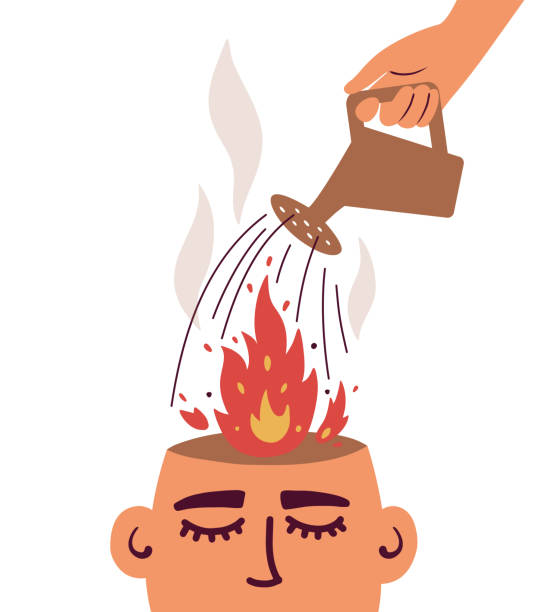Beating Burnout

We’ve all felt it. That blanket of exhaustion after days and days of stress where even just getting out of bed feels like a chore. Unfortunately this combination of emotions is universal enough to be acknowledged by professionals as “burnout.”
“Burnout” or “being burnt out” is an idea that’s brought up in casual conversation, but it is actually a condition recognized by mental health experts. By medical definition, burnout is generally described as feeling constantly exhausted or overwhelmed by life’s everyday demands. It presents itself as physical, mental, and emotional stress. It’s usually related to work, but can be triggered by any kind of prolonged unrest. Everyone can experience burnout differently depending on their lifestyle and mental health, but some common symptoms to look out for are:
- Sense of failure and self-doubt.
- Feeling helpless and detached
- Loss of motivation.
- Cynical and negative outlook.
- Decreased sense of accomplishment.
It’s incredibly important to recognize and address symptoms of burnout. The symptoms of burnout usually take hold gradually and stressors can be hard to identify because they are usually an accumulation of smaller obligations, as opposed to one, big, event. Like any prolonged amount of stress, neglecting to treat this disease will begin to create permanent physical and mental damage. The American Institute of Stress has found that 120,000 Americans die each year from health complications related to work stress.
That’s scary to think about when most of our stress comes from things that we HAVE to do. Thankfully there are many studies out there on how to beat burnout. Michael Levitt is one of the world’s leading authorities in burnout recovery and prevention, and a burnout survivor himself. After working well past 8 hours a day, 7 days a week, Levitt suffered a heart attack due the chronic stress of his everyday life. His experiences with burnout have encouraged him to speak up and help others avoid a break. Here are some of his suggestions:
- Separate Work from Home: Many motivated individuals find their work life and other obligations following them home. Everyday stressors begin to invade their spaces of rest, providing no mental separation to allow time to rejuvenate. Create dedicated spaces for work and rest. This doesn’t mean only working at your desk or in your office, but respect those physical boundaries so that the idea of work, or whatever stresses you out, doesn’t overrun how you relax.
- Prioritize Self- Care: Levitt recognizes that most people have an ingrained belief that self-care is selfish. He argues that prioritizing your care is not self centered because you’re then able to better help others if you’re providing them with your best-self. Eat well, sleep well, and make time for the things that you love. Life can’t be all work and you won’t accomplish much if you’re unhealthy.
- Set boundaries: Just like physically separating work from home, it’s important to set boundaries for your time and self care. Many people don’t have a definite end to their work day or the time they’ve carved out for self-care is too flexible. There needs to be hard borders set for work and play. Too much overlap creates a lack of relief because your mind is alway alert to your day’s obligations. There’s no rest.
We will all experience burnout in our lives, probably more than once, and some bouts will be worse than others. When you feel the symptoms of burnout creeping in, remember to take time for yourself. It’s a common issue that can have lasting effects if not addressed. And life’s too short to suffer from an illness that can be prevented with a few changes and a little bit of mindfulness.